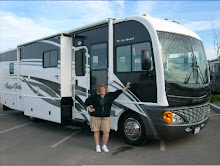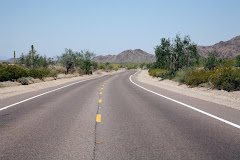The RV Consumer Group recommends the following 10 things you can do to ride the tidal wave of rising fuel prices:
1) Add after-market products that help improve gas mileage. Many RVers claim these packages make a significant difference in their engine's fuel efficiency. If you decide on one of these, be certain to buy from a reputable manufacturer, since these devices represent quite an investment.
2) Keep the vehicle tuned up. Clogged air filters and bad spark plugs, for example, can destroy mileage.
3) Keep your tires properly inflated. Low tires are hard on the gas gauge.
4) Let up on the gas pedal! Try to drive at the speed limit (or under, if you can do so safely). Lighten the pressure as much as possible when climbing hills. Putting the "pedal to the metal" definitely wastes fuel.
5) Move up to a diesel model for better (though not necessarily cheaper fuel-wise) mileage.
6) If you're thinking of trading your class A motorhome, you may want to scale down to a class C or B motorhome. Although a class B motor home may work for you only if you use your RV just for vacationing, many models get relatively great mpg.
7) Prospective motor home buyers could get more gas mileage for their money by getting into shorter lengths — for example, a 28-foot class A instead of a 36-footer. Or consider a class C motorhome. Some class C motorhome models, if well designed, afford plenty of space for snowbirding. But stay away from forty-footers if you want to use less fuel — especially those with overloaded gas engines.
8) New trailer buyers should take a look at small, well built trailers that have a reputation for following well. Some of these can even be pulled safely with an SUV. For fulltiming or snowbirding, a shorter, lighter fifth wheel will match a variety of truck models and can save you oodles on gas as well as save you the hassles and expense of towing a behemoth.
9) In any case, make certain your RV is not overloaded — whether you're driving a motorhome or pulling a trailer coach or fifth wheel. Overloading is not only dangerous, it costs at the fuel pump.
10) Economize in other ways when you're on the road. Plan overnight stays at smaller campgrounds without full hookups, for instance. During spring and summer, shop the farmer's markets for good buys on fresh produce. Research low-cost activities in the areas you'll be visiting.
Most important of all: RVers are famous for their determined spirit and optimistic outlook. The best defense in tough times is to realize the situation may be temporary. Stay positive and continue to enjoy the pleasures and benefits of RVing.



